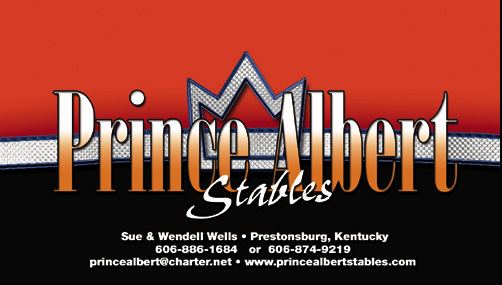Taken From the Rocky Mountain Horse Web Site
By Jennifer Kunz
AnimalForum.com staff
Do you need a horse trainer?
I’m willing to bet yes. Most people involved with horses could use a little help at some point.
Whether it’s riding lessons three times a week, hauling you and your horse to shows, or just having someone you can call and ask questions once in a while, having a knowledgeable trainer you can rely on is a confidence-building experience.
But finding someone who really understands horses, who is experienced in the discipline you want to explore, who has people skills as well as horsemanship ability, and who can help you get where you want to go with your horse is often an exercise in frustration. It can also be a very time-consuming project, but well worth the effort. Before you start looking for a trainer, have a good idea of what you are looking to accomplish with one.
A written list of your goals for the year is a good thing to have with you. Do you want to compete or just learn to be a better rider and horseperson? You’ll have to be able to communicate what you’re looking for to any potential trainer. Once you’ve defined what you want, it’s time to start looking.
There are quite a few factors to consider when shopping around. One of the most important is to do just that, shop around! Making an informed decision based on knowledge of what’s available is the best way to choose pretty much everything in life. You didn’t marry the first person you dated did you?
Visit horse shows and observe carefully, do some research and listen to word of mouth referrals.
Call and ask if you can drop in and watch a trainer work for an hour or so.
Show up half an hour early for the appointment to make sure they’re not throwing all the battered and bruised horses out in the back pasture to hide them from you. That might sound a little slippery, but it does happen, and people have to be cautious and aware of what’s going on. Take note of your first impressions and the things that impress or concern you about each trainer.
Here are a few things to consider:
Personality: Is the trainer easy to talk to? Do they answer your questions in words you can understand? Or are they one of those silent types who prefers to ride and have you watch and learn? Depending on the needs of both you and your horse, either of those can work for you as long as they understand your goals and your horse’s needs.
Just watch out for those really grumpy old guys who don’t have a pleasant word for anyone, even the people who are paying them for their advice. You’ll be frustrated and angry and unable to get anything accomplished if there is personality conflict between you and your trainer.
Is the trainer compatible with your horse? Not too big or too small, too rough or too mild to handle your equine partner’s personality and abilities? See how the two of them get along; it’s important that there be some mutual respect if you want to accomplish anything. Barn conditions: Is the barn clean and fresh smelling? Do the horses look fit and healthy and happy? Do they have clean water, salt and mineral available? Beware of too thin or too fat horses, lameness, spur tracks on the horse’s hide, or unsanitary barn conditions. All of those reflect on general horsemanship and the attitude this trainer takes towards the animals he is responsible for. Reputation:
What do other people have to say about this trainer? What do his current clients think? Sit in on a lesson that he gives to someone else to observe his teaching style. If you intend to compete, does this trainer have a good reputation at shows? What do his peers say about him? Talk to the show secretaries and other people hanging around and see what they have to say. Location: Is the training situation going to be convenient for you? If you intend to keep your horse at the trainer’s place, is it close enough that the drive over won’t be a hassle? Or would the trainer consider coming to you for lessons? Or maybe trailer-pool with someone else in your area who goes to the same trainer.
Price: Can you afford the trainer’s rates? In a perfect world, we’d all be able to have and pay for the horses and trainers of our dreams, but outside of perfection, price is something to consider. Don’t forget to ask if monthly training includes lessons, cattle charges if applicable, mileage if the trainer hauls your horse to shows, or entry fees. If money is tight, perhaps you can bargain with the trainer and do some sort of work in exchange for training. Warming up other horses, cleaning the barn, helping with their accounting … the options are endless.
Finding the right trainer might not happen overnight.
It takes some planning and careful consideration to find the one who best fits the needs of you, your horse(s) and your situation. I don’t want to advocate trainer-hopping on a regular basis, but always keep in mind that you are the customer and you are free to take your business wherever you choose whenever you choose.
Keep the lines of communication open with anyone you work with, address any concerns you have immediately to prevent them from getting out of hand and causing more conflict. Try and discuss your goals and how you are feeling about them with your trainer on a regular basis. Ultimately, your trainer is there to help guide you and your horse along the bridle path to success.
Provided as a courtesy to our readers by Animal Forum.com and Jennifer Kunz
